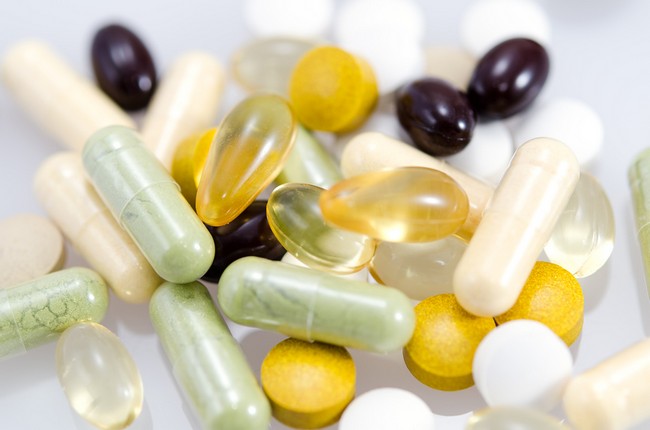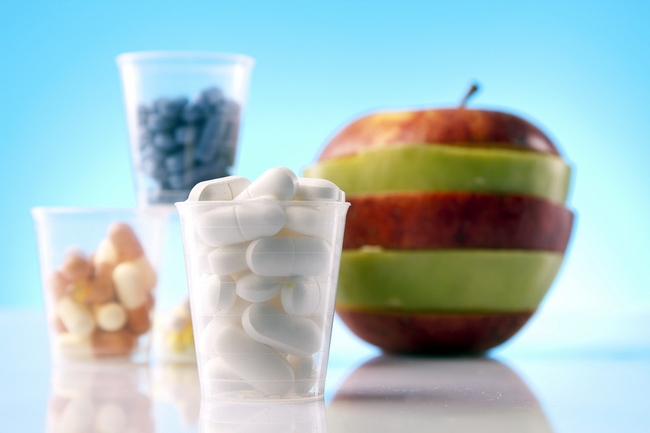- Make It Yourself Lavender Heart-Shaped Bath Bombs!
- 20 Things You Never Knew About “Down There”
- 12 Best Foods For Those Suffering From Arthritis Pain
- 12 Personal Hygiene Mistakes Almost Everyone Makes (Mom Never Told You About #4!)
- 15 Medicinal Plants And Herbs From The Cherokee People
- 12 Mind-Blowing Benefits Of Drinking Coconut Water During Pregnancy
- 12 Outstanding Winter Foods That Won’t Fatten You Up Like A Christmas Turkey
You Take These Every Day and They Might be Giving You Cancer

Photo credit: bigstock.com
As hard as you try, eating healthy can still leave you with certain deficiencies. Our soil and water are not what they once were, which means that some fruits and vegetables that used to be great sources of certain vitamins and minerals now leave our bodies deficient.
This is one of the reasons why more than half of American adults buy dietary supplements, spending somewhere around $28 billion dollars each year. Although these supplements do have a great deal to offer us, recent studies show that some of these supplements, or consuming too many of certain supplements, can greatly increase your risk of developing cancer.
The American Association for Cancer Research is about to hear about a recent study done by the University of Colorado’s Cancer Center, which found that people who took more dietary supplements than necessary had a higher risk of developing certain types of cancer.
This study was actually built on previous studies that looked at the benefits of dietary supplement for animals. In those studies, Dr. Byers, head of the University of Colorado research team, found that animals had a lower risk of cancer when they were given supplements. However, when the exact same supplements were applied to thousands of patients over a period of 10 years, the opposite was found to be true. Worse still, some people developed cancer as a result of these supplements.
For example, one of the supplements tested was a beta-carotene supplement that many people are consuming more than what is recommended. This study found that the people consuming excessive amounts of these supplements had a 20 percent higher risk of developing lung cancer and heart disease. Still another supplement, folic acid, was discovered to cause numerous polyps to grow inside the colon. Polyps in the colon are often a precursor to colon cancer. Consuming excessive amounts of folic acid was found to increase the risk of developing cancer by a whopping 56 percent!
Continue to Page 2

Photo credit: bigstock.com
There are other research studies that support this one. One study, called the Selenium and Vitamin E Cancer Prevention Trial, or SELECT for short, that was performed between 2001 and 2014, found that those who took vitamin E over a 7 year period, had a 17 percent higher rate of prostate cancer when compared to those who took a placebo, or consumed vitamin E plus selenium.
Although scientists aren’t exactly sure why this happens, it is known that consuming too much any vitamin can cause side effects. For example, too much calcium can result in kidney stones, hypercalcemia, or even kidney failure. An excessive amount of vitamin C can stop the body from absorbing copper. Even too much vitamin K, D, or A can become toxic in the body.
Since dietary supplements are regulated by the Food and Drug Administration, it’s left up to manufacturers to give proper information about safe dosing amounts on the labels of these supplements.
SEE ALSO: True Facts About Supplements Consumption Infographic
You can get plenty of natural beta-carotene in carrots and mangos. Vitamin E can be found in almonds and kale, while folic acid abounds in green vegetables such as broccoli and spinach.
If you are taking supplements, especially vitamin E, folic acid, or beta-carotene, you should consume them according to label directions and no more. Supplements are meant to be what their name implies, nothing more than supplementation to a healthy diet, not a substitute for one.
References:

































Jerzeegurl
Jul 13, 2015 at 11:28 am
It does not clarify in the article whether natural or synthetic supplements were used. I don’t know how much stock I would put in these results. The medical/Big Pharma are always trying to discredit any supplement use.